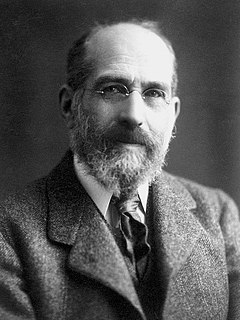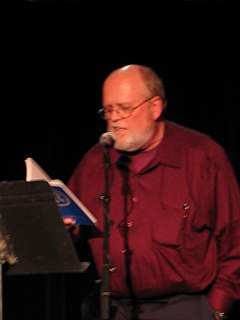A Quote by Arthur Schuster
One of the principal obstacles to the rapid diffusion of a new idea lies in the difficulty of finding suitable expression to convey its essential point to other minds. Words may have to be strained into a new sense, and scientific controversies constantly resolve themselves into differences about the meaning of words. On the other hand, a happy nomenclature has sometimes been more powerful than rigorous logic in allowing a new train of thought to be quickly and generally accepted.
Quote Topics
About
Accepted
Allowing
Been
Constantly
Convey
Differences
Difficulty
Diffusion
Essential
Expression
Finding
Generally
Hand
Happy
Idea
Lies
Logic
May
Meaning
Meaning Of
Minds
More
More Power
New
New Idea
Nomenclature
Obstacles
Other
Point
Powerful
Principal
Quickly
Rapid
Resolve
Rigorous
Scientific
Sense
Sometimes
Suitable
Than
Themselves
Thought
Train
Train Of Thought
Words
Related Quotes
Generally, the imagery and the text go hand in hand. It's much easier when the text comes first, but sometimes I need visual stimulation in order to find the words. I get an idea of what I want when I begin to shoot, and the text is usually the last thing to be resolved. I tend to leave the text open, and I refine the words up to the last minute. As for the image, I can resolve that and get that done fairly quickly.
Other people’s words are so important. And then without warning they stop being important, along with all those words of yours that their words prompted you to write. Much of the excitement of a new novel lies in the repudiation of the one written before. Other people’s words are the bridge you use to cross from where you were to wherever you’re going.
What's happening is the language. Not only in the usual sense of being interesting (which it is), but in the new sense that words are events, as real and important in themselves as wars and lovers... It is to the word, then, that the mind moves, and the word responds by taking on a physicality, even a sensuality, we have all been trained to ignore. Words have weight, and the distance between two can be a chasm filled with forces of association... What Clark is doing is genuinely new.
One way to think about play, is as the process of finding new combinations for known things--combinations that may yield new formsof expression, new inventions, new discoveries, and new solutions....It's exactly what children's play seems to be about and explains why so many people have come to think that children's play is so important a part of childhood--and beyond.
You have heard of the new chemical nomenclature endeavored to be introduced by Lavoisier, Fourcroy, &c. Other chemists of this country, of equal note, reject it, and prove in my opinion that it is premature, insufficient and false. These latter are joined by the British chemists; and upon the whole, I think the new nomenclature will be rejected, after doing more harm than good. There are some good publications in it, which must be translated into the ordinary chemical language before they will be useful.
I pay attention to what's going on around me. I'm always looking for new energy, new talent, new voices. When you do that I think it's easier to come up with fresh ideas. It's not that my career has been based on surprising people, but it's been about challenging myself - to constantly do new things that are going to broaden my own mind and in the process, hopefully, connect with other people.
The idea that money brings power and independence is an illusion. What money usually brings is the need for more money - and there is a shabby and pathetic powerlessness that comes with that need. The inability to risk new lives, new work, new styles of thought and experience, is more often than not tied to the bourgeois fear of reducing one's material standard of living. That is, indeed, to be owned by possessions, to be governed by a sense of property rather than by a sense of self.




































